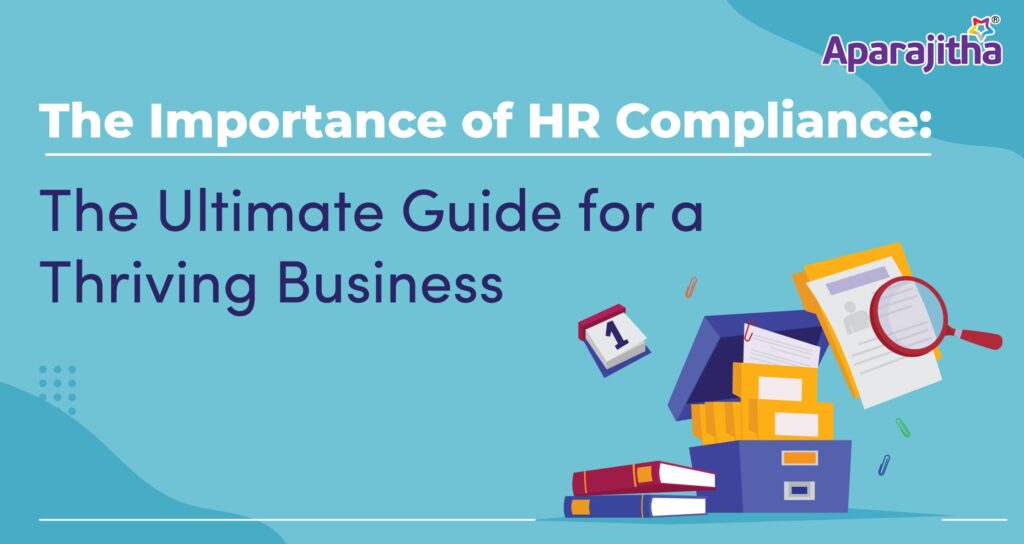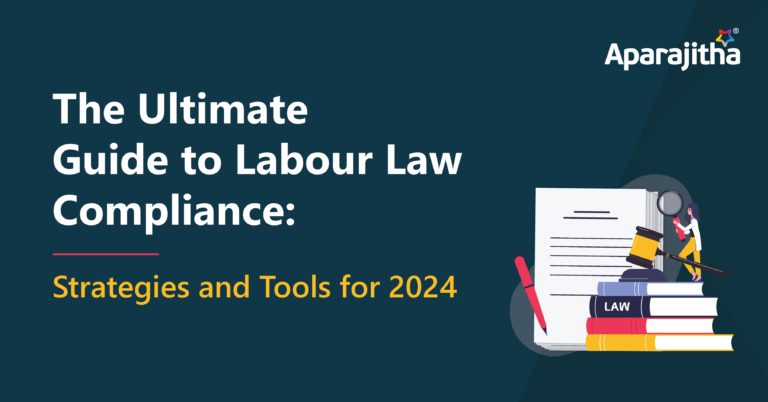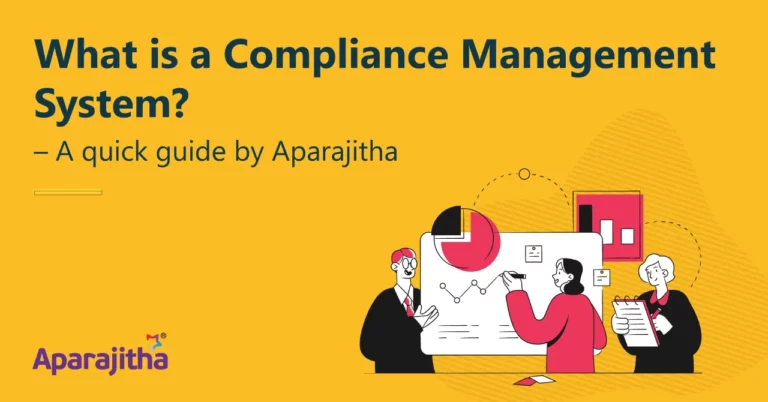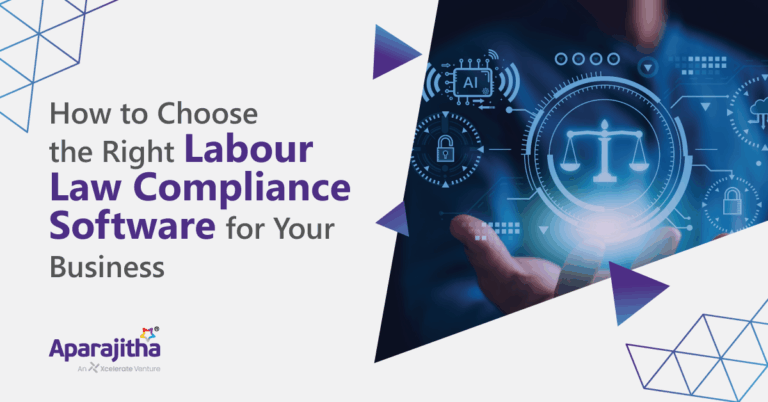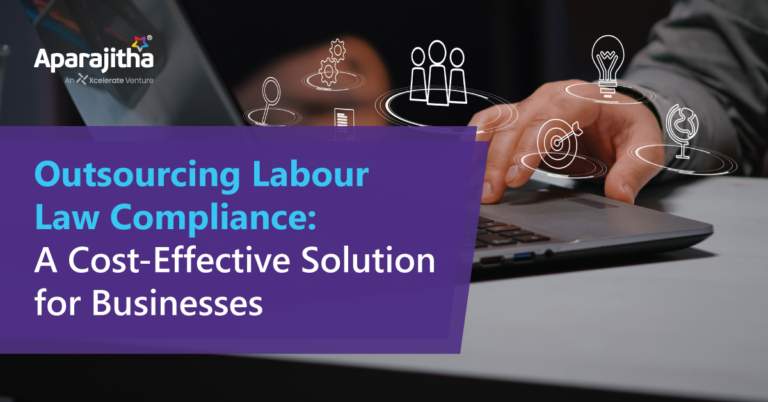What is HR compliance all about?
At the centre of any organisation are the human resources (HR) function. The HR department focuses on identifying, hiring, and retaining people with the right skill sets and qualities to execute the organisation’s strategy and achieve its goals. Given the importance of HR compliance in India, it is an important player in the organisation’s compliance structure.
Organisations are governed by numerous laws and regulations spanning employment relationships. HR compliance becomes one of the most important aspects of an organisation where compliance control and compliance management are an absolute necessity. HR Compliance breaches can become costly regarding money, reputation, and more.
To start with compliance management in HR practices—there are fair labour regulations in every country, state, and sector that offer mandatory regulations and guidelines on minimum wages, working conditions, leave policies, maternity leave, employee rights, overtime pay, allowances, gratuity, etc.
Executing HR compliance
A breach in any stated aspects can be hazardous to the organisation. So, how does one go about creating and executing HR compliance? A detailed process should define individual and group behaviour to ensure the organisation’s laws and policies are followed. When onboarding an employee, they should be given a walkthrough of these laws, policies, penalties, and practices by the HR team. Merely writing and signing policies gets you nowhere, and established policies must be effectively communicated periodically.
To ensure this compliance is followed properly, periodic and stringent audits are necessary. Internal audits can unearth financial and reputational risks. All such audits can be incorporated with a pan-organisational tool/platform for compliance management. Effective handling of these practices will remove legal liabilities.
Example of an HR compliance breach
If we look at examples, it would be better to figure out HR functions. Let’s say there is a planned layoff in an organisation. There are strict regulations governing these actions. For example, someone who has applied for maternity leave cannot be terminated just like that. It would be an HR compliance breach. If an employee is eligible for overtime pay, it needs to be done then and there. There are many such common laws in place regarding compliance. These payroll compliance issues are much more than requesting an employee to fill out an extra form in their intake packet or fixing an error with an employee’s time entry stamp.
What happens when an organisation does not comply with HR regulations?
An organisation may face a negative impact if it does not comply with HR regulations, including,
• Failure to comply with HR regulations can lead to hefty fines, lawsuits, and, even worse, reputational damage. Nothing is worse than reputational damage for a company.
• Non-compliance with HR regulations can lead to unhappy employees. It is important to satisfy employees with a work-friendly environment. If you are not doing it correctly, employees may feel their rights are not protected.
• HR non-compliance can lead to increased risks. An organisation without HR compliance will be seriously impacted if there are any accidents, injuries, and other workplace-related incidents.
• When an organisation lacks statutory compliance in hr in India, it can create a negative company culture where employees feel unappreciated. This can result in poor productivity and a lack of employee engagement.
How should you go about HR compliance for an organisation?
1. List out the compliance regulations that apply to you.
Compliance regulations relate to anything that depends on factors like your industry, location, and business size. It is important to list the compliance obligations and applicable laws.
2. Delegate your compliance regulations to the HR department.
An organisation must ensure all the compliance regulations are divided among the various team members. It is even better to appoint a person with the necessary skills and knowledge to handle compliance exclusively for the company.
3. Be updated with key changes in laws and regulations.
It is critical to stay updated with changes in laws and regulations that apply to your organisation. The changes typically happen at the beginning of the year.
4. Ensure regular HR policies audit.
Every organisation must conduct regular HR audits to check if their leave policy, compensation policy, etc., are compliant. It is also important to create awareness about the policies among your employees.
5. Create an HR compliance checklist.
Creating an HR compliance checklist helps you don’t forget anything. You can create an statutory compliance in HR checklist for hiring new employees and other general organisational compliance.
Compliance management tool
HR compliances are associated with legal, safety, and payroll processing, as HR is one composite function. The state and the centre have their own rules and should follow all the rules applicable to them and the organisation. A dedicated compliance management tool that automates checks, alerts, regulatory processes, and updates is very important. There needs to be an educated person who can act as the HR compliance point of contact in case of issues. Today, many vendors specialise in compliance management. These experts will manage your compliance with specialised tools to ensure you never have a breach in your organisation. Statutory Laws are quite rigid and span every HR aspect, from employee search, write-up, probation, and termination. And everything else in between.
If you are an entrepreneur, you must consider complying with HR regulations…
statutory compliance in HR is critical for organisations to ensure they are following all relevant laws and regulations related to employment.
In summary, HR compliance is essential for organisations to meet their legal obligations, protect their employees, maintain a positive reputation, and gain a competitive advantage.

